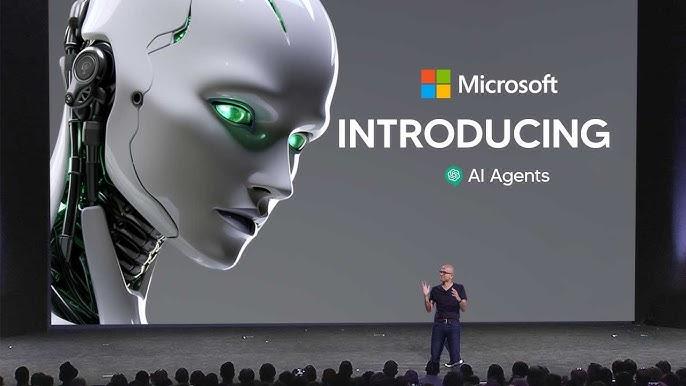Write Once, Run Anywhere: Microsoft's AI Agent Takes on Coding

The dream of “Write Once, Run Anywhere” (WORA), once popularized by Java’s cross-platform capabilities, is being reimagined in the age of artificial intelligence. Microsoft’s latest innovation, an AI-powered coding agent, promises to revolutionize software development by enabling developers to write code that seamlessly operates across platforms, languages, and environments. This breakthrough tool not only streamlines workflows but also democratizes coding, empowering both seasoned developers and novices to build scalable, future-proof applications. Here’s how it works, why it matters, and what it means for the future of tech.
How It Works
Microsoft’s AI agent leverages advanced machine learning models, likely built on technologies like GPT-4 or Codex, trained on vast repositories of code spanning multiple programming languages and frameworks. The system interprets a developer’s intent—whether provided as natural language prompts, partial code snippets, or even visual diagrams—and generates optimized, platform-agnostic code.
Key features include:
-
Automatic Translation: Converts code between languages (e.g., Python to JavaScript) while preserving functionality.
-
Cross-Platform Optimization: Adjusts code for specific OS requirements (Windows, Linux, macOS) or cloud environments (Azure, AWS).
-
Real-Time Testing: Identifies and resolves compatibility issues, ensuring robustness across devices.
Integrated with tools like GitHub and Visual Studio, the AI agent acts as a collaborative partner, suggesting improvements and automating repetitive tasks.
Where It’s Used
The AI agent is versatile, with applications in:
-
Enterprise Software: Modernizing legacy systems (e.g., COBOL to Java).
-
Web & Mobile Development: Building responsive apps that adapt to browsers, iOS, and Android.
-
Cloud-Native Development: Deploying microservices across hybrid cloud infrastructures.
-
IoT & Edge Computing: Writing code for diverse hardware configurations.
Industries like healthcare, finance, and logistics are early adopters, using the tool to accelerate digital transformation.
Why It Matters
Three factors drive this innovation:
-
Cross-Platform Demand: Users expect apps to work everywhere, but maintaining multiple codebases is costly.
-
Developer Shortages: The AI bridges skill gaps, allowing smaller teams to tackle complex projects.
-
Speed to Market: Automating compatibility checks slashes development cycles from months to weeks.
“Businesses can no longer afford siloed solutions,” says Mark Lee, a tech analyst at Forrester. “Tools like Microsoft’s AI agent are critical for staying competitive.”
Benefits
-
Efficiency: Reduces redundant coding by up to 70%, according to internal Microsoft trials.
-
Accuracy: Minimizes human error in cross-platform adjustments.
-
Democratization: Non-experts can prototype ideas without deep coding knowledge.
-
Cost Savings: Lowers maintenance and hiring expenses.
-
Future-Proofing: Codebases stay adaptable as technologies evolve.
Quotes
-
Sarah Chen, Lead Developer at Microsoft: “Our AI agent isn’t replacing developers—it’s freeing them to focus on innovation instead of boilerplate code.”
-
James Rivera, CTO of FinTech Startup Nexa: “We deployed a cross-platform payment app in half the time. The AI handled edge cases we’d never have anticipated.”
Conclusion
Microsoft’s AI coding agent marks a paradigm shift, turning WORA from a lofty ideal into an achievable standard. By automating compatibility hurdles, it empowers teams to build faster, smarter, and more inclusively. While challenges like ethical AI use and oversight remain, the tool’s potential to reshape industries is undeniable. As Sarah Chen notes, “This is just the beginning. The future of coding is collaborative—between humans and machines.”
FAQ
Q: How does this differ from traditional WORA approaches?
A: Unlike static frameworks (e.g., Java Virtual Machine), the AI dynamically adapts code to evolving platforms and user needs.
Q: What languages does it support?
A: Over 20 languages, including Python, JavaScript, C#, and Swift, with more in development.
Q: Can it handle large-scale projects?
A: Yes, but human oversight is recommended for complex business logic and security-critical systems.
Q: Is the generated code secure?
A: The AI follows best practices, but developers should review code for compliance with organizational policies.
Q: How can I access the tool?
A: It’s currently in beta via GitHub Copilot’s enterprise tier, with a public rollout expected in 2024.
Q: Will this replace developers?
A: No—it augments their workflow, handling repetitive tasks so they can focus on strategic problem-solving.
Microsoft’s AI agent is more than a tool; it’s a catalyst for a more connected, efficient digital world. As boundaries between platforms blur, the mantra “Write Once, Run Anywhere” is finally becoming reality.




